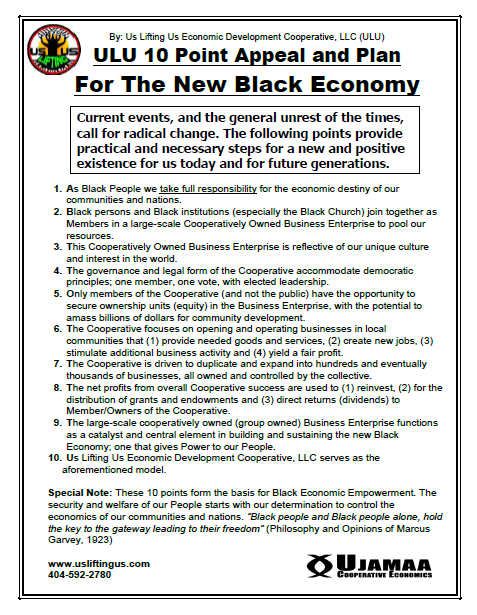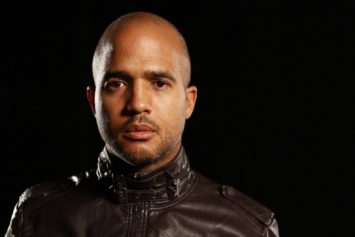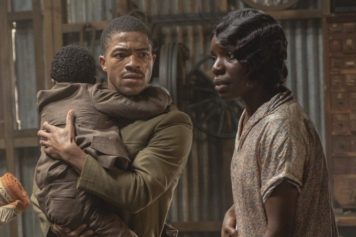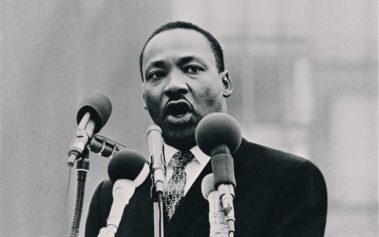Facing Economic and Political Annihilation, Black America Has No Other Choice But to Seize Control of its Economic Destiny
Economic Empowerment Group Urges Cooperative Economics in the Black Community
In light of the myriad problems facing the Black community, both here in America and throughout the African diaspora, it is time for Black people to think in terms of economic development and self-determination. A form of predatory economics is destroying Black people, and we must begin to pursue cooperative economics in which we control our communities if we are to succeed, says Us Lifting Us Economic Cooperative, LLC, or ULU. An economic empowerment group based in Atlanta, ULU concludes that Black America has few options but to take control of its economic destiny.
As we begin the post-Obama era, the organization notes, Black people are in need of a new Black economy.
“In spite of having an African-American President (the most powerful political office in the world) and nearly 10,000 Black Elected Officials across the U.S., the national Black Community is being hurled head-long into economic and political annihilation,” ULU wrote in an official statement, also noting that when President Obama was elected, “many thought his election indicated the end of white America’s need to dominate everything and it would perhaps usher in a policy of one America for all equally regardless of race. King’s dream is now concretely a nightmare for most.”
As evidence, the group points to the “deliberate and intentional attack on the Black populace, especially our youth,” including the rise in police brutality and domestic terrorism, the 751 people killed by police this year, and incidents such as the increase in Black church burnings and the massacre at Emanuel AME Church in Charleston, South Carolina.
“The vicious white backlash to Obama’s presidency can be heard in the civic discourse that daily becomes more vitriolic and disparaging of Black people and other people of color,” the group notes. “As the right wing Republican Party presidential candidates gallop further to the right and towards ‘Hitler style’ fascism, the need for Black people to develop a comprehensive economic and political strategy has become overwhelmingly and undeniably clear. Now more than at other time in our history since 1865, Black People must organize for real power to insure the safety and welfare of its people.”
The group offers that “Black people are awakening to the truth that the system of racism-white supremacy reinforced by predatory capitalism cannot and will not work for us.”
After years of Black people believing that a good education would level the playing field, that our loyalty to corporate America would bring us security, and that holding political office would be the key to our salvation, there is a new emphasis on business success and economic empowerment.

“I think we’re part of a global phenomenon, a global decline, and since we’re part of those social groups who have mot fortified themselves, then we are subject to the ebb and flow, we’re caught in the blowing of the wind,” said Hekima Kanyama, Elder Adviser and board member for ULU. Brother Hekima told Atlanta Blackstar that Black people found themselves in this situation due to a lack of attention to build their capacity as a social group, and the Black community abdicating its responsibilities once Obama became president. Further, Black Americans bought into the narrative of democracy and opportunity, without developing a culture that would protect us in the name of group interest.
“The global family is seeking to free itself from the shackles. Those of us in the belly of the beast– the crumbs falling off the table are few,” Kanyama says, adding that it is good that Black people are now positioned to have to confront reality.
“For the first time confront them from a global perspective,” Kanyama says. “We may have been affected by them, but we didn’t know it, so we didn’t fortify ourselves to confront a global reality. The global currents are real, and we have to be cognizant of them, and plan in the context of global forces.”
D.J. Jordan, an African centered economist and board member of ULU, views the challenges facing the Black community in terms of power dynamics.
“Power or the lack thereof is the problem we face as a race, the lack of Black power, that means the power to control our lives and our circumstance. Everything in my analysis is a byproduct of that, all the ills in our community come from not controlling our lives and circumstance,” Jordan told Atlanta Blackstar.
Jordan noted that a group-based structure in which Black people own the means of production “brings a system of capitalism as a global economic system under scrutiny,” a system which “is totally aligned with racism and white supremacy globally.” The key, Jordan believes, is to “tap into the ancestral wisdom” and “build a new model to solve our problems culturally.”
ULU plans to send a delegation to the Justice or Else! Million Man March 20th anniversary on October 10, where they will spread the word about their 10-point plan.
“The cooperative model is not even in the discussion of black economic empowerment. There is no discussion from that perspective,” Jordan laments. “We show our connection to Africa, but when we discuss economics we sound like white people. What we have been trained and educated to do is solve white people’s problems. The purpose of the education and training is to not to see that. We’ll continue to solve other people’s problems while ours are exacerbated.”


